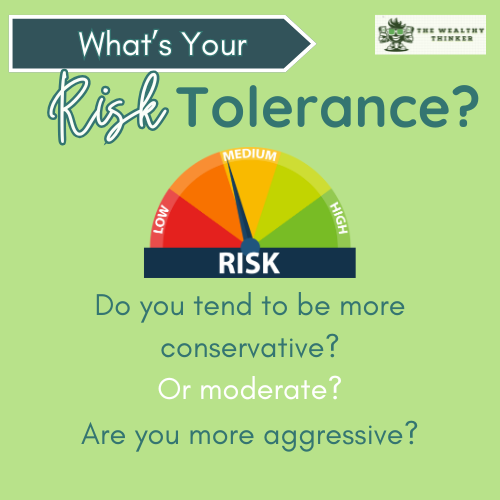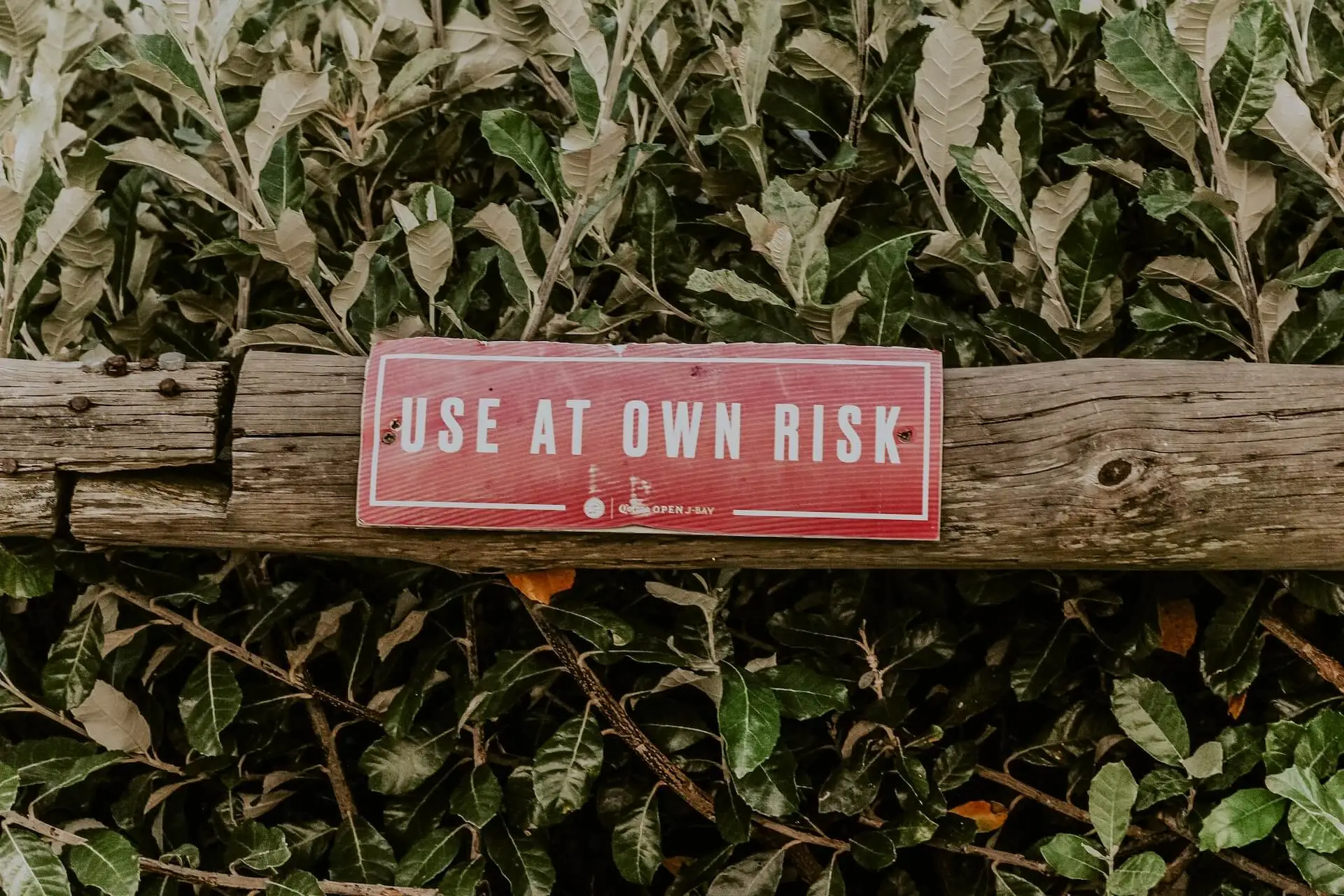Risk and reward are mutually exclusive in the world of investment.
The reward you gain from an investment is most times proportionate to the risk you take.
A higher investment return might be the payoff for taking on risk. If you properly invest in higher risk assets, such as stocks or bonds, with a long timeline and a long-term financial goal in mind, you may be able to earn more money than if you just save your paycheck.
On the other hand, for short-term financial objectives, lower risk cash investments may be more suitable.
However, it’s important that you understand how not knowing your risk tolerance could result in you losing some or all of the money you invest.
In this article, we look at what risk tolerance is and why it is so important when making investment decisions.

What is risk tolerance?
Risk tolerance refers to the amount of loss an investor is prepared to handle while making an investment decision.
If your tolerance is low, you’ll invest conservatively.
For instance, a greater portion of your portfolio might be in low-risk bonds and a smaller portion in higher-risk stocks. However, in most cases, the personality and character of a person usually has significant influence in investment behavior.
If you’re someone who likes to take risk in general, chances are this will be reflected in your investment style too.
If you’re more conservative by nature, most likely you’ll take a conservative approach when it comes to investing.
Why is it important?
Knowing your risk tolerance is crucial. It enables you to make financial decisions that will suit your goals and values.
You’ll have a better grasp on how much risk you’re willing to take, which ultimately reflects in the choice of assets you’ll include in your portfolio.
A person with a low risk tolerance, for instance, could feel more at ease investing in mutual funds, whereas a person with a high risk tolerance might be prepared to take on riskier assets like stocks.
5 Factors that help determine your risk tolerance
Several factors determine the level of risk an investor can afford to take.
1. Timeline.
Depending on their investing intentions, each investor will choose a different time horizon.
In general, if there is more time, greater risk may be taken.
Someone who needs a certain amount of money in fifteen years can afford to take more risks compared to someone who needs the same amount in just five. This is because, while the market tends to grow over the long term, it often experiences short-term dips and fluctuations.
2. Goals.
Everybody has different financial objectives.
Financial planning is not always done with the intention of amassing as much cash as possible. Calculating the amount you need to accomplish specific goals allows for the pursuit of an investment plan that will produce those returns.
As a result, depending on their goals, each person will adopt a varied level of risk tolerance.
3. Age.
Age reflects the amount of life an investor is willing to take.
The reason for this is because of the amount of time it takes to recover from potential losses, and also the responsibilities a person has to shoulder.
Younger investors are known to take on more risk, because they generally have a longer time to recover from steep losses, and also less responsibilities (e.g. no family).
On the other hand, older people have a more conservative approach because there less time to recover (e.g. they may be close to retirement), and also they may have dependents (e.g. kids going to college).
4. Capital.
The amount of capital available for investment is also another factor that determines risk.
The larger the portfolio, the more tolerance to risk. A portfolio size of $5 million will allow an investor to take on more risk than one who has $5,000. In the event of a value decline, a larger portfolio will have a considerably lower percentage loss than a smaller one.
5. Personality.
The features of your personality will predispose you to certain financial behaviors, one of which is your appetite for risk.
Some investors are naturally more comfortable with taking risks than others. On the contrary, market volatility can be extremely stressful for some investors.
Risk tolerance is, therefore, directly related to the personality of the investor and how comfortable they are with taking risks.
What Are the Steps to Make a Good Risk Management Strategy?
3 Types of Risk Tolerance
Depending on how much risk they’re willing to take, investors are often divided into three basic types.
A few of the elements on which the categories are based have been covered above. These three groups are:
1. Aggressive.
Investors that take big risks and invest aggressively are knowledgeable about the market.
These investors are accustomed to their portfolios seeing significant increases and decreases. Aggressive investors tend to be well-off, knowledgeable, and typically have a diverse portfolio.
They favor asset types with volatile price movements, like stocks. They’ll naturally experience significant losses when the market performs poorly because of the amount of risk they take, but they also benefit greatly when the market performs well.
They do not, however, panic sell during market crises, since they are accustomed to volatility on a regular basis.
2. Moderate.
When compared to investors who take on aggressive risks, moderate risk takers have a lower level of risk tolerance.
They assume some risk and often decide what portion of losses they can take. Between hazardous and safe asset classes, they strike a balance with their investments.
When the market is doing well, they earn less money than investors who take a more aggressive strategy, but they don’t experience significant losses when the market is down.
3. Conservative.
The least risky investors in the market are the conservative ones.
They choose the solutions they believe to be the safest and never engage in risky investments. They place preventing losses above achieving benefits.
How do you know your risk tolerance?
By taking into account how much money they’re prepared to lose if an investment doesn’t work out, investors may figure out their level of risk tolerance.
Knowing the answers to these will help you better understand your risk tolerance.
Personal Goals and Time Horizon
- What are my investment goals? (e.g., retirement, buying a house, education, or building wealth)
- When will I need to access this money? (short-term vs. long-term goals)
- How much flexibility do I have with this timeline? (e.g., can I delay my goals if needed?)
Financial Situation
- How stable is my current financial situation? (steady income, emergency fund, existing debts)
- What percentage of my total savings am I comfortable investing?
- Can I afford to lose some or all of the money I’m investing without impacting my essential expenses?
Emotional and Psychological Factors
- How do I usually react to financial loss or unexpected expenses?
- Would I feel anxious if my investments temporarily dropped in value?
- Do I prefer investments with steady, smaller returns over riskier ones with the potential for higher rewards?
- Am I someone who stays calm and patient during market downturns, or do I feel compelled to sell when I see losses?
Investment Knowledge and Experience
- How much do I know about investing and the risks involved?
- Have I invested before, and how did I handle market volatility in the past?
- Am I comfortable researching and managing investments, or do I prefer to rely on professional guidance?
Risk vs. Reward Preferences
- Would I prioritize preserving my initial investment over earning higher returns?
- Am I comfortable taking risks in one area of my portfolio if it’s balanced by safer investments elsewhere?
- If my portfolio lost 20% of its value in a year, how would I react? (e.g., stay invested, adjust my strategy, or withdraw)
Flexibility and Adaptability
- How much control do I need over my investments? (e.g., fixed-income vs. stocks)
- Am I open to adjusting my investment strategy as market conditions or personal circumstances change?
- Am I prepared to stick to a long-term plan even during market fluctuations?
Planning for the Worst
- If the worst-case scenario happened and I lost a significant portion of my investments, how would it affect my life?
**Note: Knowing the answers to these questions will definitely help you get closer to figuring out your risk tolerance, but it’s still a good idea to get advice from a financial professional before you start putting your money out there.
Final Word on Knowing Your Risk Tolerance
Investing without taking into account risk tolerance might be deadly.
When investments lose value, an investor has to know what to do. Many investors leave the market, which results in low prices being sold. However, a market downturn might also be a terrific opportunity to invest.
Understanding your level of risk tolerance can help you decide how far you are willing to go. Therefore, knowing one’s risk tolerance aids in making wise judgments rather than rash ones.
Editor’s note: This article was originally published May 9, 2023 and has been updated to improve reader experience.
Photo by janilson furtado on Unsplash



















